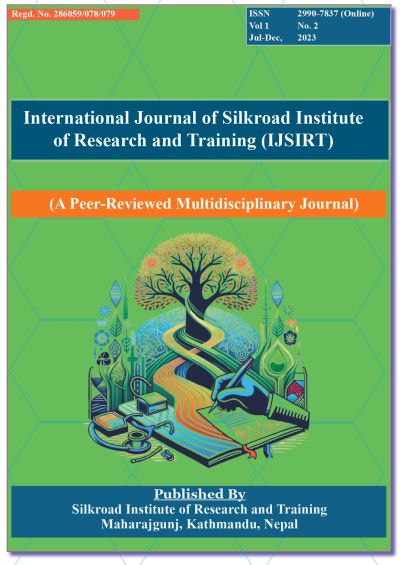Comparative Study Between Conventional Polypectomy With Microdebrider Assisted Endoscopic Sinus Surgery
DOI:
https://doi.org/10.3126/ijsirt.v1i2.61401Keywords:
FESS, microdebrider, conventional, nasal polyposisAbstract
Background: Nasal polyposis is a frequent presentation in ENT & HNS OPD. When endoscope was introduced, surgical management of nasal polyposis took a turn. More recently microdebrider use is in frequent practice. The objective of this study is to compare the surgical outcome in patients undergoing microdebrider assisted endoscopic surgery and conventional methods using sinus endoscopes in the surgical management of nasal polyps.
Methods: The study was a prospective randomized study carried out in department of ENT in college of medical sciences Bharatpur from January 2021 to December 2021. Forty patients undergoing nasal polypectomy were randomly allocated into two groups; Group C (n=20) underwent FESS using conventional instruments, Group M (n=20) underwent FESS assisted with microdebrider. Comparison was done based in intraoperative blood loss and surgical duration, and post operative outcome.
Results: Blood loss was significantly less in Group M when compared with group C (P=0.000). Mean surgical time was also significantly less in group M (79.5 min), (P=0.000). No difference was found regarding postoperative scaring, crusting, nasal discharge, synechiae formation, polyp recurrence and hospital stay (P>0.05) when two groups were compared. Significant symptomatic improvement was observed in both groups in 3 and 6 months follow up visits when compared with preoperative symptoms. Significantly low postoperative VAS score in Group M was observed when compared with group C at 3 months postoperative follow up.
Conclusions:It was concluded that FESS using conventional instruments or assisted with micodebrider is acceptable for surgical management of nasal polyposis. When both techniques are available, microdebrider assisted FESS is superior regarding less intraoperative blood loss, shorter surgical duration and better postoperative outcomes.
Downloads
Downloads
Published
How to Cite
Issue
Section
License
Copyright (c) 2023 Bibek Sharma, Chhanya Bhandari, Apar Pokharel

This work is licensed under a Creative Commons Attribution-ShareAlike 4.0 International License.
CC BY-SA: This license allows reusers to distribute, remix, adapt, and build upon the material in any medium or format, so long as attribution is given to the creator. The license allows for commercial use. If you remix, adapt, or build upon the material, you must license the modified material under identical terms.




